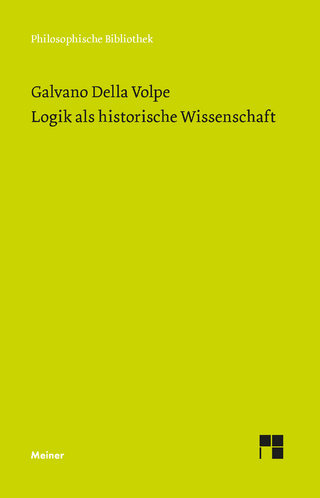
Origins Of Logical Empiricism
University of Minnesota Press (Verlag)
978-0-8166-2834-6 (ISBN)
- Titel z.Zt. nicht lieferbar
- Versandkostenfrei innerhalb Deutschlands
- Auch auf Rechnung
- Verfügbarkeit in der Filiale vor Ort prüfen
- Artikel merken
Logical empiricism remains a strong influence in the philosophy of science, despite the discipline's shift toward more historical and naturalistic approaches. This latest volume in the eminent Minnesota Studies in the Philosophy of Science series examines the main features of the intellectual milieu from which logical empiricism sprang, providing the first critical exploration of this context by authors within the Anglo-American analytic tradition of philosophy. These articles challenge the idea that logical empiricism has its origins in traditional British empiricism, pointing instead to a movement of scientific philosophy that flourished in the German-speaking areas of Europe in the first four decades of the 20th century. The intellectual refugees from the Third Reich who brought logical empiricism to North America did so in an environment influenced by Einstein's new physics, the ascension of modern logic, the birth of the social sciences as rivals to traditional humanistic philosophy, and other large-scale social, political and cultural themes. The contributors emphasize the connections among members of the logical empiricist movement as well as their connections with members of other major intellectual movements of the time. Focusing on the continuing influence of logical empiricism and the vitality of the issues with which its proponents struggled, this important volume provides valuable context to contemporary philosophers of science.
Part 1 The cultural and philosophical context: constructing modernism - the cultural location of "Aufbau", Peter Galison; overcoming metaphysics - Carnap and Heidegger, Michael Friedman; Neurath against method, Nancy Cartwright and Jordi Cat; the Enlightenment ambition of epistemic utopiansim - Otto Neurath's theory of science in historical perspective, Thomas E. Uebel. Part 2 Science, philosophy and scientific philosophy: relativity, "eindeutigkeit" and monomorphism - Rudolf Carnap and the development of the categoricity concept in formal semantics, Don Howard; Einstein "agonists" - Weyl and Reichenbach on geometry and the general theory of relativity, T.A. Ryckman. Part 3 Logic, mathematics and philosophy: the philosophy of mathematics in early positivism, Warrent Goldfarb; Carnap - from logical syntax to semantics, Thomas Ricketts; languages without logic, Richard Creath. Part 4 Experience, empirical knowledge and empiricism: postscript to protocols - reflections on empiricism, Thomas Oberdan; conceptual knowledge and intuitive experience - Schlick's dilemma, Joia Lewis Turner; from epistemology to the logic of science - Carnap's philosophy of empirical knowledge in the 1930s, Alan W. Richardson.
| Erscheint lt. Verlag | 15.10.1996 |
|---|---|
| Reihe/Serie | Minnesota Studies in the Philosophy of Science |
| Co-Autor | Alan W. Richardson |
| Verlagsort | Minnesota |
| Sprache | englisch |
| Maße | 149 x 229 mm |
| Themenwelt | Geisteswissenschaften ► Philosophie ► Logik |
| Geisteswissenschaften ► Philosophie ► Philosophie der Neuzeit | |
| Naturwissenschaften | |
| Sozialwissenschaften | |
| ISBN-10 | 0-8166-2834-3 / 0816628343 |
| ISBN-13 | 978-0-8166-2834-6 / 9780816628346 |
| Zustand | Neuware |
| Haben Sie eine Frage zum Produkt? |
aus dem Bereich


